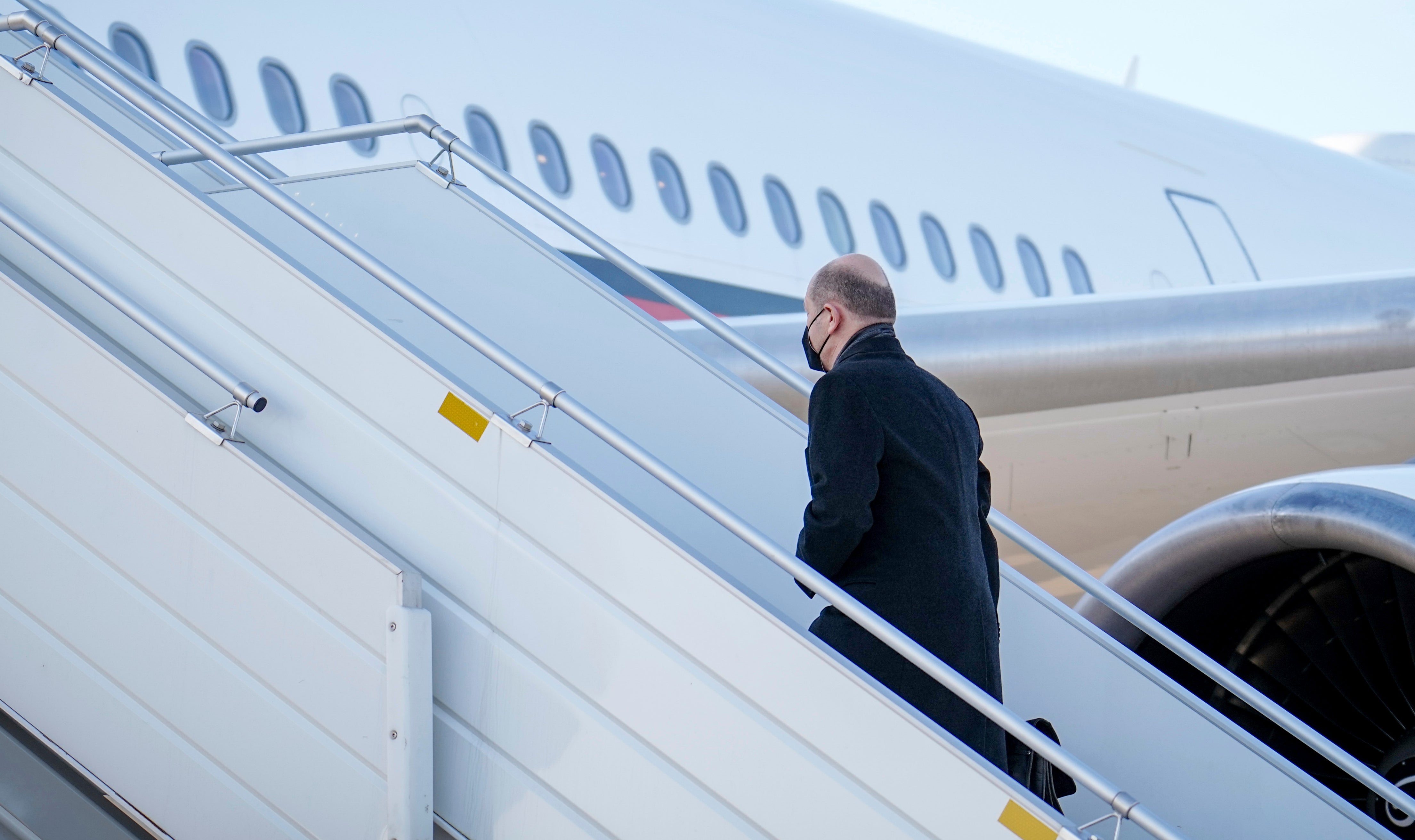Ukraine-Russia crisis: What to know as diplomacy steps up
Diplomatic efforts to head off what U.S. officials have warned could be an imminent Russian attack on Ukraine are going into a new round on Monday as Germany’s chancellor heads for Kyiv

Your support helps us to tell the story
From reproductive rights to climate change to Big Tech, The Independent is on the ground when the story is developing. Whether it's investigating the financials of Elon Musk's pro-Trump PAC or producing our latest documentary, 'The A Word', which shines a light on the American women fighting for reproductive rights, we know how important it is to parse out the facts from the messaging.
At such a critical moment in US history, we need reporters on the ground. Your donation allows us to keep sending journalists to speak to both sides of the story.
The Independent is trusted by Americans across the entire political spectrum. And unlike many other quality news outlets, we choose not to lock Americans out of our reporting and analysis with paywalls. We believe quality journalism should be available to everyone, paid for by those who can afford it.
Your support makes all the difference.Diplomatic efforts to head off what U.S. officials have warned could be an imminent Russian attack on Ukraine are going into a new round on Monday as Germany s chancellor heads for Kyiv
Over the weekend, some airlines canceled flights to the Ukrainian capital and troops there unloaded new shipments of weapons from NATO members Sunday, as its president sought to project confidence in the face of U.S. warnings of possible invasion within days.
As political leaders look for a way to defuse spiraling tensions, Ukraine’s ambassador to Britain clarified comments appearing to suggest that his country could consider dropping its ambition to join NATO to avoid war with Russia.
Here’s a look at what is happening where and why:
WHAT IS THE GERMAN LEADER BRINGING?
German Chancellor Olaf Scholz s first visit to Kyiv since taking office in December comes before his first visit to Moscow on Tuesday. It's part of a flurry of in-person and remote diplomacy by Western leaders.
Scholz is taking a message of solidarity to Ukrainian President Volodymyr Zelenskyy after criticism of Germany for its refusal to join some allies in sending lethal weapons to the country.
Scholz said Sunday that Ukraine could “be sure that we will show the necessary solidarity, as we did in the past," pointing to financial aid to Kyiv in the past.
He renewed his warning that Russian military aggression against Ukraine "will lead to tough responses and sanctions that we have carefully prepared and that we can make effective immediately, together with our allies in Europe and in NATO.”
Scholz will meet Russian President Vladimir Putin on Tuesday.
WHAT'S WITH UKRAINE'S NATO AMBITIONS?
Ukraine’s ambassador to Britain has clarified comments appearing to suggest that his country could consider dropping its ambition to join NATO to avoid war with Russia.
Vadym Prystaiko told BBC radio on Sunday that “we might” drop the ambition, which is enshrined in Ukraine’s constitution, because Ukraine was being “blackmailed.”
“What I’m saying here is that we are flexible, trying to find the best way out,” the ambassador said. “If we have to go through some serious concessions, that’s something we might do.”
On Monday, Prystaiko said there had been a misunderstanding. He said that “to avoid war we are ready for many concessions.”
“But it has nothing to do with NATO, which is enshrined in the constitution,” he said.
HOW IS UKRAINE'S PRESIDENT FARING?
Zelenskyy was elected as president in a landslide victory in 2019. As a political novice making an unlikely bid for the job, he had vowed to reach out to Russia-backed rebels in the east who were fighting Ukrainian forces and make strides toward resolving the conflict.
But Zelenskyy is watching his once-enormous support dissolve as Ukraine faces fears of a Russian invasion that could not only take the rebel regions but possibly the rest of the country.
To make matters worse, the incumbent whom Zelenskyy defeated in 2019 has boldly returned to the country to face charges of treason and stir up opposition to him. Analysts suggest that Moscow is seeking to bolster support among pro-Russia politicians in Ukraine and that the buildup of Russian forces near Ukraine’s border is aimed partly at destabilizing the country’s politics.
——
Yuras Karmanau in Kyiv, Ukraine, Vladimir Isachenkov in Moscow, and Jill Lawless in London, contributed to this report.